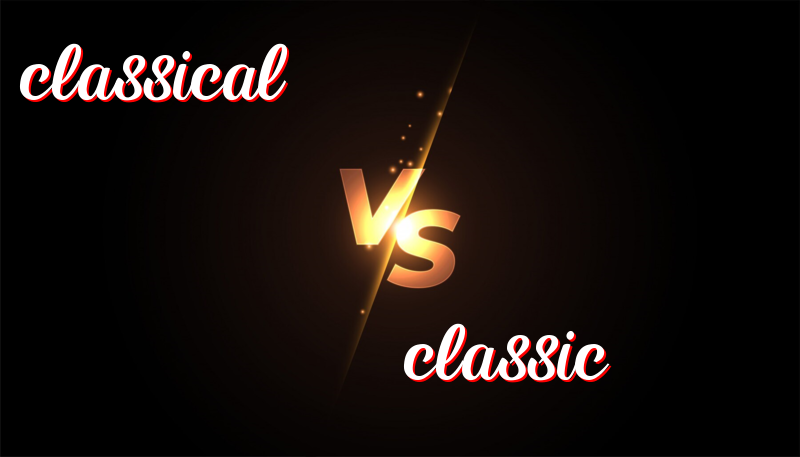Classical vs. Classic: Understanding the Difference
May 25, 2024
Classical vs. Classic
Let’s learn about the words “classical” and “classic” and how to use them!
History:
“Classical” comes from ancient Greece and Rome. It means something from the past that has lasting value. “Classic” comes from the Latin word “classicus,” which means the highest class.
How to use them:
Classical: Use “classical” to talk about things related to the ancient civilizations or traditional, formal styles.
- I enjoy listening to classical music like Beethoven and Mozart.
- She studies classical literature from Greece and Rome.
- His dance performance was known for its classical technique.
- We went to see a classical play at the theater.
- My yoga class incorporates classical poses and breathing exercises.
Classic: Use “classic” to describe something that is of high quality and has stood the test of time.
- The little black dress is a classic fashion staple.
- Her grandfather drives a classic car from the 1950s.
- The movie “Casablanca” is considered a classic of cinema.
- I read the classic novel “Pride and Prejudice” by Jane Austen.
- Chocolate chip cookies are a classic treat loved by many.
Trick to Remember the Difference:
Think of “classical” as being related to ancient civilizations and traditional styles. “Classic” refers to something of high quality and timeless.
Summary:
Remember, “classical” is about ancient traditions, while “classic” is about things that are timeless and top quality.

Leave a Reply
You must be logged in to post a comment.